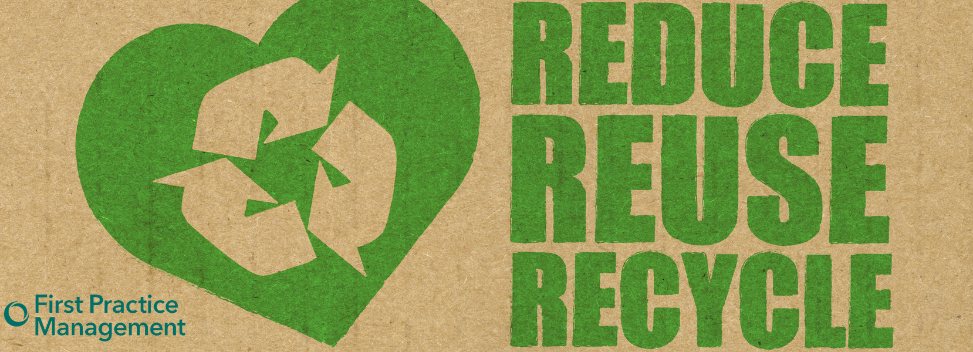
Plastic Free July is fast approaching, a month dedicated to reducing plastic waste, particularly single-use plastics. But as a GP practice, what can you do to reduce the plastic waste in your surgery?
The NHS creates over 156,000 tonnes of clinical waste each year and this waste does include plastic waste such as medical devices and their packaging, syringes, gloves, PPE, and other instruments which are made predominantly of plastic. 42% of plastic waste generated by health care is incinerated, the most harmful way of disposing of plastic waste. These items contribute significantly to plastic waste and disposing of single-use plastics after just one use can cost substantial amount.
While most of these types of equipment are essential to patients’ safety, most are non-recyclable and end up at landfills or incinerators which then contributes to pollution and greenhouse gas emissions. The NHS is trying to tackle plastic waste through different strategies such as the Design for Life roadmap, which includes reducing waste and emissions and moving to other methods where medical devices could be reused, remanufactured or recycling. By 2045, the hope is that the UK will have transitioned away from using avoidable single-use items.
Climate change is one of the biggest public health challenges that we are currently facing, but what can GP surgeries do to reduce their plastic waste and create a greener practice in the process?
Reduce
· Reducing your use of plastic in a surgery setting could include investing in reusable PPE, reusable sharps bins and wearing gloves for clinically appropriate procedures.
· Reducing the use of gloves to only when needed can also have a positive impact. For example, you may not always need to use gloves to give vaccinations or when comforting patients.
· You can find out more about the usage of gloves in the ‘Are you glove aware campaign?’. While decreasing the use of some plastics may not always be possible, where possible it could go a long way to reducing waste.
Reuse
· Where possible, as mentioned above, reusing items could be an option to reduce plastic waste. For example, reusing specifically designed sharps bins is one simple way to reduce waste.
· Reusing could also stretch as far as office equipment too.
Recycle
· Recycling plastics where possible would go a long way to reducing waste. This can include plastics such as inhalers that can be recycled at pharmacies.
· Letting patients know that these schemes exist may give them the information they need to be able to dispose of their inhalers safely and in a greener way.
On a smaller scale, ensuring you have separate bins in staff areas for recycling could go a long way to helping the environment. Ensure recyclable materials such as plastic bottles, plastic cutlery, and any soft plastics along with other recyclable materials are disposed of in a recycling bin so these items don’t become mixed with general waste.
For more information and ideas on how to reduce waste in your workplace, visit the Plastic Free July website. You can also read more about plastics in healthcare in this Stericycle article.
For information on reducing, reusing, and recycling in primary care, visit the Greener Practice for information and tips on how your practice could reduce plastic waste.
To find out more about what the NHS is doing to become greener and how you can help, visit Greener NHS.


0 Comments